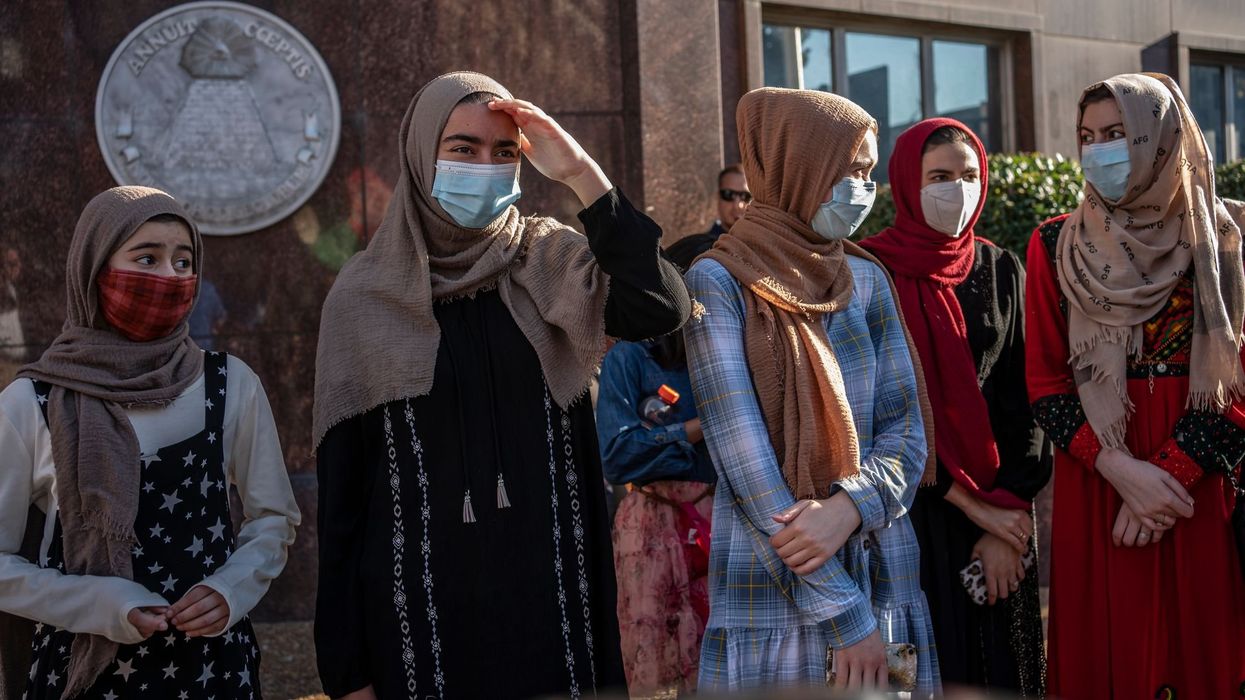The fate of more than 2,000 refugees expected in Tennessee over the coming months remains in limbo after President Donald Trump halted resettlement and support efforts beginning on his first day in office.
The Tennessee Office of Refugees, a department of Catholic Charities, works with a handful of nonprofit agencies to help refugees displaced by natural and humanitarian disasters get a fresh start in the Volunteer State.
Between Sept. 2024 and Sept. 2025, the office expected to welcome 2,385 newly-arriving refugees, according to Rick Mussachio, a spokesperson for the Diocese of Nashville. Refugees represent a small portion of legal immigrants admitted to the country. They are fully vetted by federal authorities before being approved for resettlement.
But the president’s order has frozen transport of all U.S.-bound refugees. And a subsequent January 24 “stop work” letter was sent to refugee resettlement agencies across the country to halt so-called “reception and placement” services. These temporary services include small stipends — about $1,300 per month — to help refugee families pay for basic necessities in their first three months in the country and provide staff support to help them get oriented.
More than 140 refugees who arrived in Tennessee since September are impacted by the halt of reception and replacement services, according to data provided by the Tennessee Office of Refugees. These refugees hailed from nearly a dozen countries, including Afghanistan, Iraq, Democratic Republic of the Congo, Cuba, Haiti, Burma, Sudan, Venezuela, Guatemala and Nicaragua.
“It’s had a huge impact,” Mussachio said. “People with travel documents were stopped wherever they were. And recent arrivals need the support through this program. It’s a vital stepping stone to build roots and establish life in communities.”
Mussachio noted that Catholic Charities has some limited reserves to draw on temporarily, but a long term stoppage puts ongoing refugee services at risk. Catholic Charities on Friday laid off 11 refugee program staff members and the jobs of 60 more are at risk, he said. The agency has issued an urgent call for volunteers to assist during the federal funding stoppage.
The people we resettle are oftentimes coming from dangerous or perilous circumstances. A lot of people in Nashville have been waiting for years for their family members to arrive.
– Don't forget to add author
The Trump administration has offered no certain timelines on when the halt on refugee arrivals is lifted. Trump’s Jan. 20 executive order said it would continue “until such time as the further entry into the United States of refugees aligns with the interests of the United States.”
Staff at the Nashville International Center for Empowerment, or NICE, had been preparing for at least 64 overseas arrivals in February, said Max Rykov, director of development and communications.
Those individuals’ plane tickets have been cancelled. Many of those slated to arrive in Tennessee have family members who have been waiting for them, sometimes for long periods. Rykov called the cancellations “heartbreaking.”
“The people we resettle are oftentimes coming from dangerous or perilous circumstances,” he said. “A lot of people in Nashville have been waiting for years for their family members to arrive.”
Nashville has long been a vital hub for refugee resettling in the United States from around the globe. A long tradition of refugee-serving agencies has given rise to Kurdish, Vietnamese, Somali and other local communities. Refugee resettlement agencies working with the Tennessee Office of Refugee Resettlement help new arrivals get a start in Memphis, Chattanooga and Knoxville.
Dan Curran, a spokesperson for Nashville-based Inspiritus, said the agency was expecting about 100 refugees in February. What will ultimately happen to them is unknown, he said.
Refugees represent one small portion of the legal immigration population, Curran noted. They go through a vetting process by federal authorities that can take up to two years.
Marina Peshterianu, associate director of Bridge Refugee Services in Chattanooga said her agency, with the help of local churches and other volunteers, would “continue to serve our clients.”
“I don’t want to plant fear or panic right now,” she said. “I think we all hope that a reasonable solution is there. We’re just waiting for it to come.”
Tennessee Lookout is part of States Newsroom, a nonprofit news network supported by grants and a coalition of donors as a 501c(3) public charity. Tennessee Lookout maintains editorial independence. Contact Editor Holly McCall for questions: info@tennesseelookout.com.


